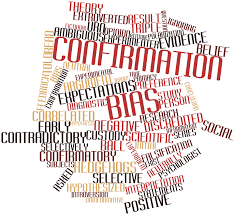|
Decisions! Decisions! How Objective Are You Really?
|

A lot of management involves making decisions: who to hire, who to promote, who to fire, what programs to encourage and which to reject. We all like to think that we make decisions based on objective facts and evidence, but the research shows otherwise.
You may have heard the term confirmation bias, the idea that we tend to make decisions consistent with our prejudged opinions and beliefs. After all, who doesn't like to be right?
Confirmation biases can prevent us
from considering important information
when making decisions
Recent research, however, adds to that idea with studies showing that we also tend to decide based upon rewards, going toward the decision that we think will offer us the greatest payback.
What Should You Do?
- What's important for us as managers and executives is to look for our own confirmation bias
when we're making decisions, as well as being skeptical of our own tendencies to go for the reward in any decision.
- It is also helpful to keep these ideas in mind when we watch other people make decisions, or when we are trying to persuade someone in a negotiation.
- If we are working with our own team, we can ask someone to serve as the devil's advocate, to help the group step back during the decision making process in order to make sure that we are being as objective as possible and considering all the facts and evidence.
 |
Did You Know?
|
Our classes on conflict, management and leadership always include a section on decision making skills and theory. For more information, call or write us at: 303-216-1020 or [email protected]
Learn how to embrace conflict to drive productivity, creativity and innovation.
Read Lynne's book The Power of a Good Fight.
|
|
|
3985 Wonderland Hill | Suite 106 | Boulder, CO 80304
|
|
|
|